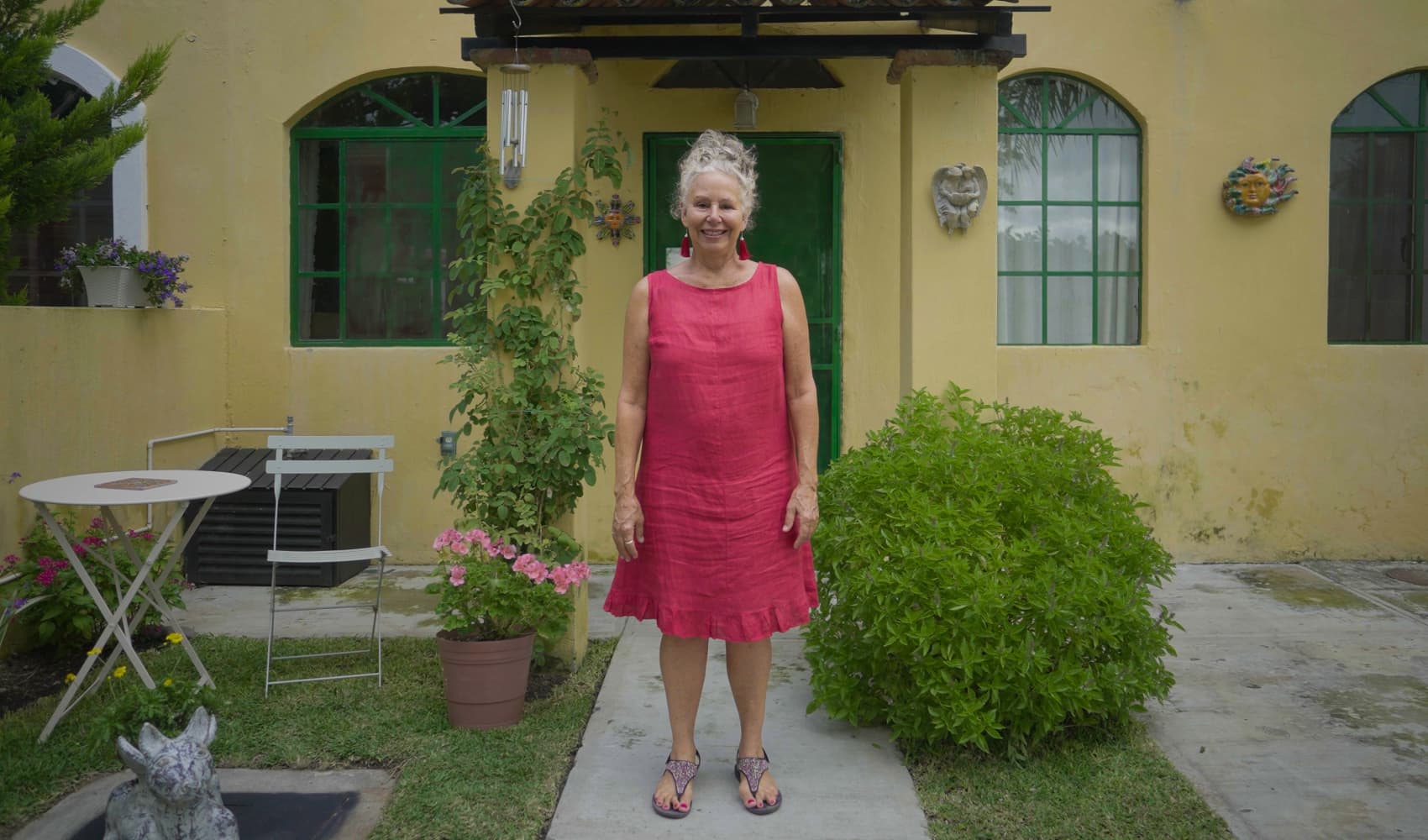
- Mari Pepin, a previous contestant from ABC's "The Bachelor" franchise, opens up about the financial side of reality TV stardom.
- With or without finding a happily ever after, dating show contestants often find opportunities as influencers once they have built a fan base.
- Influencers can make between $2,500 and $5,000 per month, according to a 2023 NeoReach survey.

STAY IN THE KNOW
Watch NBC10 Boston news for free, 24/7, wherever you are. |
|
Get Boston local news, weather forecasts, lifestyle and entertainment stories to your inbox. Sign up for NBC Boston’s newsletters. |
Theoretically, contestants on ABC's "The Bachelor" are looking for love. What they often find are business opportunities.
Mari Pepin, 28, got both.
Get top local stories in Boston delivered to you every morning. Sign up for NBC Boston's News Headlines newsletter.
Pepin was a participant on "The Bachelor" season 25, which aired in 2021, and then returned for "Bachelor in Paradise" season 7 later that year. She went home with Kenny Braasch's final rose — they've now been married for more than a year — and an Instagram base of more than 300,000 followers, up from 50,000 before her reality TV appearances.
That's when the money started to come in.
After "Bachelor in Paradise" aired and her following jumped, influencer opportunities followed. "Instantly, we were getting huge deals," she said.
Money Report
More from Personal Finance:
'Underconsumption core' is in, and not a moment too soon
Recession pop: How music hits on economic trends
'I'm looking for a man in finance'
In most cases, companies send Pepin products, which she then tries at her home in Chicago. If she likes an item, she'll post about it, hitting the company's suggested talking points and then earning a fee, she said.
Pepin has worked with Loreal, Factor meal delivery, Ruffino wine and Mermaid hair products, among others. On some account promotions, Pepin and Braasch team up. Braasch also has partnerships, including Apothic wine and gambling site BetUS, which connected Pepin with CNBC.
Brands giving products to celebrities and influencers in return for promotions on their social media feeds is a common marketing strategy, according to a new report from Influencer Marketing Hub.
Alternatively, the businesses will sign deals with influencers to promote the product in their posts for a fee or a share of affiliate revenue, similar to a commission for each sale. The posts alone help drive sales, the survey of more than 3,000 marketing agencies, brands and professionals found.
For the companies, it's an approach that has proved effective when it comes to building a brand, according to the report.
Influencers 'can make bank'
For many reality television stars, influencing has become a popular side hustle with a low barrier to entry.
Depending on the platform and follower count, along with other factors, content creators can make between $2,500 and $5,000 per month, a 2023 NeoReach survey of more than 2,000 full- and part-time creators found.
Although Pepin earned more than $50,000 last year through influencing and has made as much as $12,500 for a single post, according to records reviewed by CNBC, the number of prospects, and payout, can vary greatly.
"That inconsistency is really scary for me," she said.
"The larger the following, the more they can make bank," said Casey Lewis, a social media trend expert and founder of trend newsletter After School. "If they really juice the affiliate, they can make a ton of money."
In some cases, that can be enough for a supplemental income stream, but few earn a living wage. Most full- and part-time creators earn an annual income of $15,000 or less, according to NeoReach's survey.
Still, 57% of Gen Zers said they would like to become an influencer if given the chance, according to a 2023 report from Morning Consult. The report was based on a poll of more than 2,200 adults and a separate survey of 1,000 Gen Zers ages 13-26 who use various social media platforms.
"A lot of people aspire to be influencers because they want to be self-employed and to be recognized for their taste and to be someone," Lewis said.
However, "there's awareness that it's not that easy," she added. "Monetizing your life in that way is exhausting."
Nearly half of young adults have a side gig
These days, having any sort of side hustle can provide a much-needed income boost to help keep up with a higher cost of living.
As of 2024, 36% of U.S. adults have a second job and make an average of $891 per month in extra cash from that role, up from $810 in 2023, according to a June report by Bankrate that polled more than 2,300 U.S. adults. Among Gen Zers and millennials, the share of adults with a side gig jumps to nearly 50%.
Pepin has a full-time day job as a social media marketing manager. "The influencer stuff is just kind of extra. It's not really reliable," she said.
For now, though, Pepin is making the most of her reality TV fame as one half of a successful "Bachelor" couple.
"I think you have to strike while the iron is hot," Pepin said.






